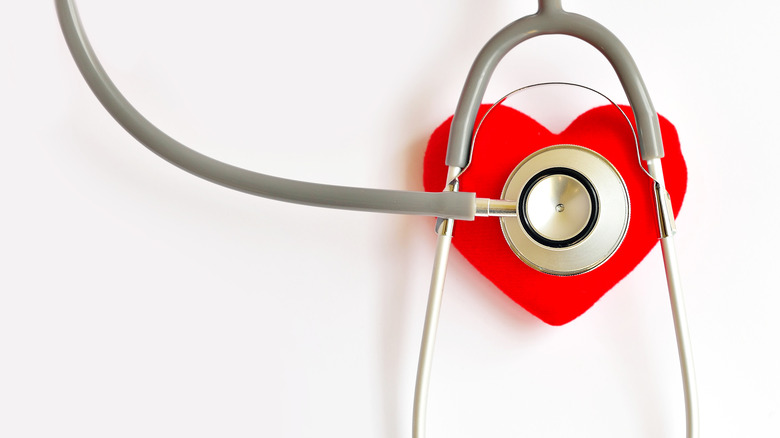What It Really Feels Like When You Have A Blood Clot
Clotting is our bodies' way of preventing us from bleeding too much if we experience an injury. Being unable to make blood clots puts a person at risk of hemorrhaging (per Merck Manual), so we can safely say that clotting is an essential bodily function.
But that doesn't mean that blood clots are always welcome. Sometimes a blood clot can develop in a dangerous area, in which case it is called a thrombus. Cleveland Clinic notes that blood clots are particularly dangerous when they develop inside veins or arteries. For example, arterial clots inside the brain and heart result in strokes and heart attacks respectively, which are both among the most common causes of death in the United States. It is also alarming when a clot, in this context called an embolism, dislodges and moves through the bloodstream. Embolisms that affect the lungs can be fatal.
Every year, blood clots afflict up to 900,000 Americans and kill as many as 100,000 (per CDC). According to the Cleveland Clinic, people are particularly likely to experience blood clots if they are pregnant, older, have cancer, or take birth control. That said, a blood clot can happen to anyone, and you may be wondering what it would feel like if it happened to you.
What a blood clot feels like
What a clot feels like will vary based on where the clot is developing. If the clot is in your leg, you will feel leg pain or discomfort that may feel like cramping, soreness, tightness, or a pulled muscle. You should seek emergency care if this is accompanied by difficulty breathing, chest pain, a sudden cough, dizziness, or a fast heartbeat (per Hackensack Meridian Health).
Likewise, blood clots in the arm can cause arm pain, and clots in the belly can cause abdominal pain in addition to nausea and vomiting. A clot in the heart may cause crushing chest pain and pain that runs down the left arm. A blood clot in the lungs will also cause chest pain, in addition to difficulty breathing and possibly coughing up blood. Cleveland Clinic warns to call 911 immediately if you have trouble breathing, chest pain, or sudden difficulties in seeing or speaking. If you have trouble seeing or speaking, or are unable to feel or move one part of your body, that could be a sign of a stroke.

